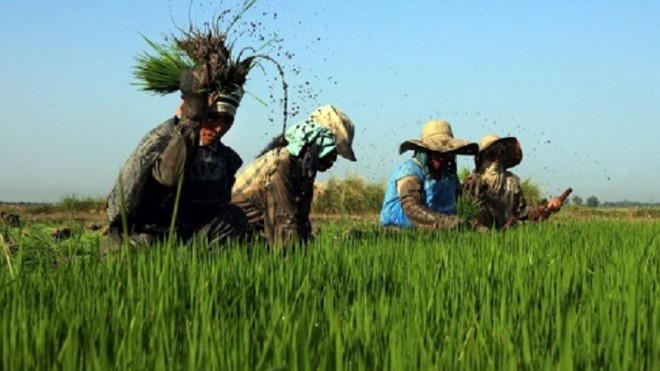In The Know: Agricultural Competitiveness Enhancement Fund

The Agricultural Competitiveness Enhancement Fund, put up in 1996 after the Philippines joined the World Trade Organization, was created as a safety net for farmers and fishermen affected by the trade liberalization policies of the government. INQUIRER FILE PHOTO
The Agricultural Competitiveness Enhancement Fund (Acef), put up in 1996 after the Philippines joined the World Trade Organization (WTO), was created as a safety net for farmers and fishermen affected by the trade liberalization policies of the government.
Under Republic Act No. 8178, or the Agricultural Tariffication Act, which established Acef, the fund’s entire proceeds should be earmarked by Congress for irrigation, farm-to-market roads, postharvest facilities, credit, research and development, retraining, extension services and marketing infrastructure for the agriculture sector.
Then Sen. Edgardo Angara, who also served as agriculture secretary, authored the law setting up Acef, funded with duties collected from the importation of agricultural products under the minimum access volume as committed by the Philippines to the WTO under the Uruguay Round Final Act.
The fund was supposed to expire in 2007, but it was extended to 2007 and then 2015.
In January 2011, the Department of Agriculture (DA) suspended the Acef, which allows small farmers and fisher folk to take out loans without collateral, after an audit showed it missed its target beneficiaries—poor farmers and fishermen.
Article continues after this advertisementFormer Sen. Francis Pangilinan, then chair of the Senate committee on agriculture and food, warned that the fund could go bankrupt, citing a DA report that showed only P5 billion remained of the Acef fund, which in 2009 was P20 billion.
Article continues after this advertisementPangilinan said the DA report showed that only P200 million in loan repayments since 2002 had been accounted for. He said that about P900 million that was supposed to be released to farmers and fishermen was unliquidated.
More than a year later, the government released P2.7 billion in fresh funds for farmers and fishermen with the lifting of the moratorium on the
corruption-tainted Acef.
In August 2012, Pangilinan said that Budget Secretary Florencio Abad Jr. had agreed to release P1.95 billion from the Acef fund and another P700 million in fresh infusions beginning in September after the Congressional Oversight Committee on Agricultural and Fisheries Modernization agreed to institute measures to prevent the misuse of the facility.
Under the new guidelines, Pangilinan said 60 percent of the Acef would be given as grants to deserving farmers and fishermen while another 10 percent would be given in scholarship funds to their relatives.
Only 30 percent would be earmarked for loans, down from 70 percent during the Arroyo administration. Pangilinan said that this would be coursed through government financial institutions (GFIs) rather than state agencies with more stringent lending requirements, including appropriate interest rates and minimum collateral.—Inquirer Research
Sources: Inquirer Archives and gov.ph
RELATED STORIES
2 lawmakers gained from farm subsidies
P5B coursed through Nabcor could be used as new plunder case, says lawyer